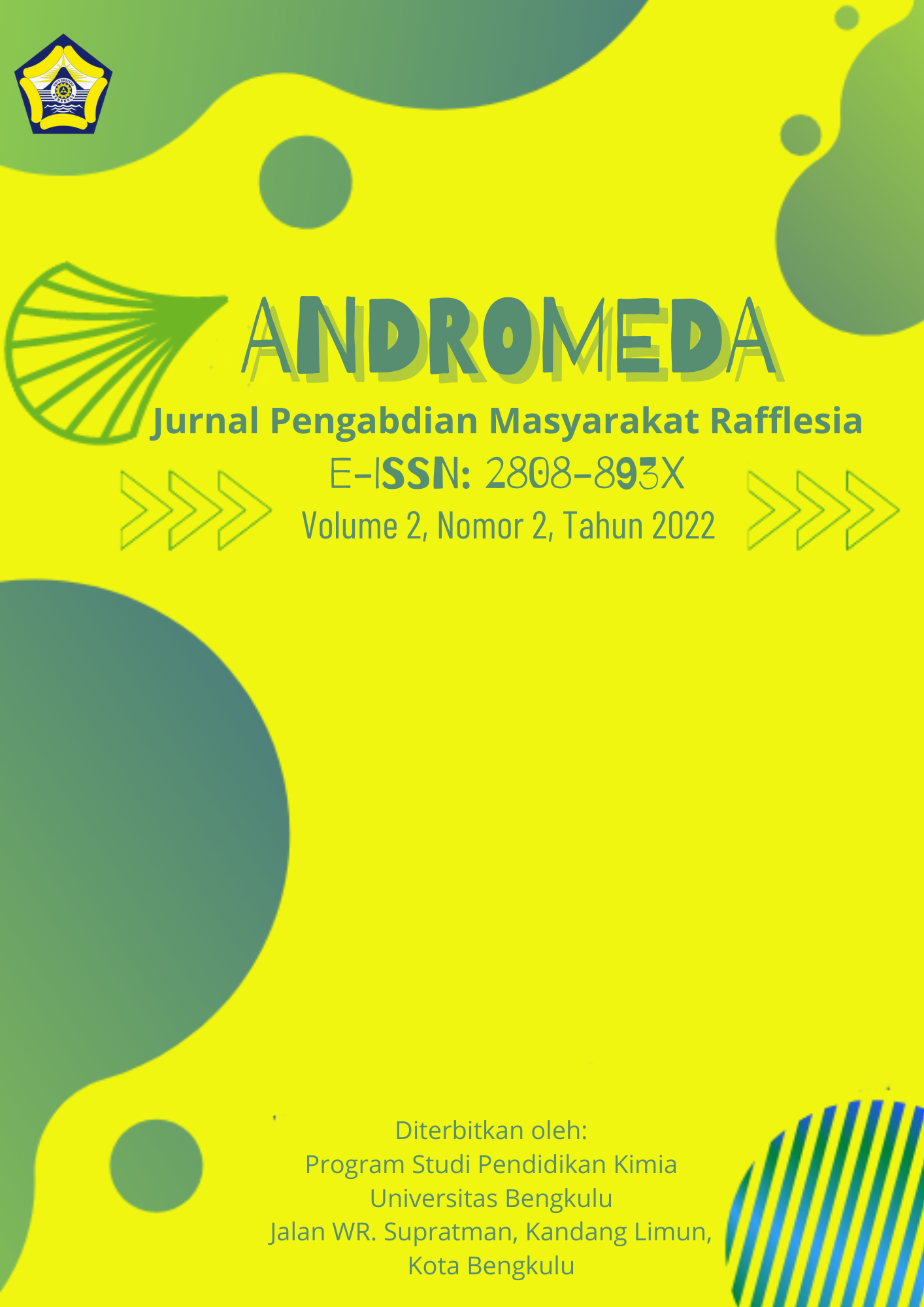Main Article Content
Abstract
Community service was conducted in Tapak Gedung Village, Kepahiang Regency to coffee farmers. This activity aims to enrich to coffee farmers and gives training on processing coffee bean waste (coffee bean skins) into liquid organic fertilizer with green chemistry principle. The material of how fertilizer processing was given by a lecturer from Agriculture Faculty continued by practical training on how the liquid organic fertilizer was made from coffee bean waste. This activity was followed by around 30 participants with high enthusiasm on the training. The production of organic fertilizer was done by mixing local microorganism, coffee bean waste and water into an airtight container. The result was brownish liquid with distinct alcohol odor, which indicates decomposition process by microorganism. Evaluation pre-activity using questionnaire showed that most respondents had little to no knowledge of how to utilize coffee bean waste, and post-activity questionnaire result showed that more than 90% respondents agree to utilize liquid organic fertilizer as replacement for synthetic fertilizer and agree to sustainably continuing the program to utilize coffee bean waste as liquid organic fertilizer.
Article Details
Copyright (c) 2022 Sura Menda Ginting, Dewi Handayani, Mimi Sutrawati

This work is licensed under a Creative Commons Attribution-ShareAlike 4.0 International License.
Authors who publish in this journal agree with the following terms:
- Authors retain copyright and grant the journal right of first publication with the work simultaneously licensed under a Creative Commons Attribution License that allows others to share the work with an acknowledgement of the work's authorship and initial publication in this journal.
- Authors are able to enter into separate, additional contractual arrangements for the non-exclusive distribution of the journal's published version of the work (e.g., post it to an institutional repository or publish it in a book), with an acknowledgement of its initial publication in this journal.
- Authors are permitted and encouraged to post their work online (e.g., in institutional repositories or on their website) prior to and during the submission process, as it can lead to productive exchanges, as well as earlier and greater citation of published work (See The Effect of Open Access).
- This work is licensed under a Creative Commons Attribution-ShareAlike 4.0 International License.
